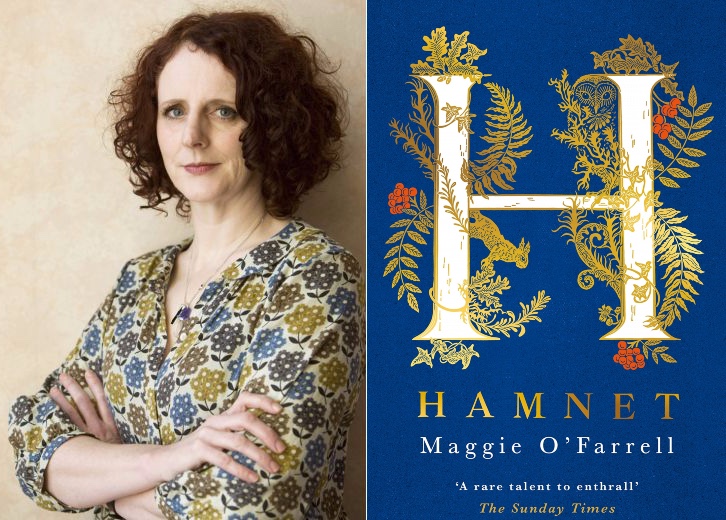
Yet another way Shakespeare has infiltrated his way into our contemporary realities comes in the form of Maggie O’Farrell’s newest novel, Hamnet. While O’Farrell could not have predicted the current pandemic in which we find ourselves, the novel, with its universal themes of grief, growth, and healing have been joined with those of sudden loss and fear as they relate to a public health crisis. Shakespeare’s was the Black Death, or the “pestilence,” as it was more commonly referred to at the time, and O’Farrell takes us through the lives of the Shakespeare household before and after the death of his son, Hamnet.
O’Farrell, in conversation with author Jen Campbell in early May, says that in the biographies she’s read of perhaps the greatest playwright to ever live, Shakespeare’s only son is mentioned once or twice per volume, often followed by statistics of the likelihood that children would fall ill and die due to the plague or for other reasons. As if they (the parents) should not have been surprised by the death of their child. What is more curious is that, in all the historical and biographical accounts of Shakespeare’s life, no one really knows what he was like. This can also be said of his wife, Anne Hathaway. She, however, has faced much more criticism, often painted as shrewd, cold, or unlovable.
But O’Farrell changes this in her newest novel by doing a few things. First, the name “William Shakespeare” in any iteration is never uttered. No “Will” or “Mr. Shakespeare” touches the narrative. Then, he becomes a marginal character, cast to the side; though, as Campbell aptly comments, he still has presence like a “shadow” looming over the text. He is only referred to as “the husband,” “the father,” “the tutor,” or “the son.” This gives room for those often sidelined or stereotyped to come to the fore: most significantly, Anne Hathaway, or, as O’Farrell suspects is her real name, Agnes (pronounced then like “añ-es”). O’Farrell brilliantly writes Agnes as the novel’s center and guide, where all would be lost without her. She is other-worldly and remarkable, perceptive to a level that leads others to often misunderstand her. Just like Agnes’ husband, the reader is immediately intrigued by and infatuated with her.
The names “Hamnet” and “Hamlet” in Shakespeare’s time were also interchangeable. O’Farrell has said that her mission in writing this novel is to investigate why “the father” was compelled to name his most famous play after his son four years after his death. This story is so poignant because, just as O’Farrell explores the love that blossoms between Agnes and “the tutor,” how it is sweet and sunny and strong, the moments of grief are difficult, dark. The duality between loss and love has the reader aching, feeling both emotions fully throughout their body. And, since this story is based in history, the reader knows what will happen, that the son will die and the play Hamlet will be written some years after. But the ways O’Farrell builds tension and grounds the story in the characters’ reactions is extraordinary. Turning the final page—I’m serious—I gasped.
Many have claimed this is a modern masterpiece. I would even go so far as to say that this is Maggie O’Farrell’s magnum opus. There is much I haven’t touched on that seemed redundant to review, but I will quickly list a couple qualities I thought remarkable as well: O’Farrell’s superb prose, the immersive imagery, and the significance of nature. I will sit with the Shakespeare family in Stratford for a long time. O’Farrell’s characters are delicately drawn and full, made fuller because the story does not shy away from describing what grief does to the body, to the mind, to familial bonds, and how it colors happiness, in memory and future moments. Whether in the context of the Black Death or the current pandemic, O’Farrell has created for us another connection to Shakespeare through themes unbound to time, of tragedy and recovery. Moving and resounding, Hamnet is a triumph.
Set to come out July 21, 2020. We already have a bunch of preorders, give us a call or email us to add your name to the list!
